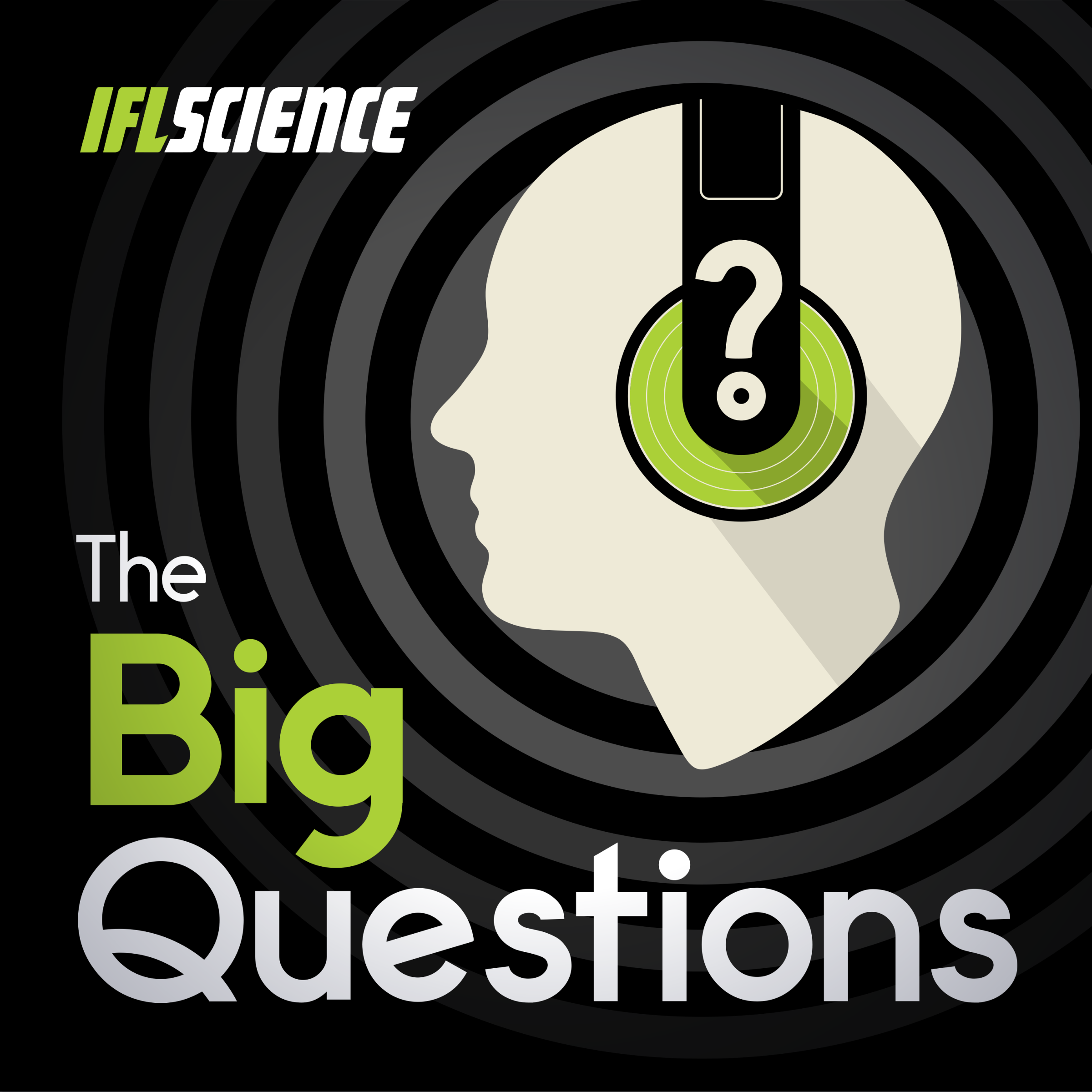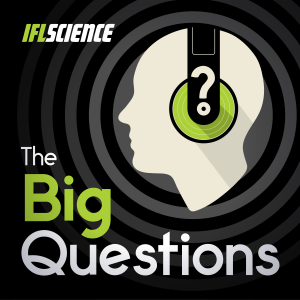
762.5K
Downloads
53
Episodes
From saving the planet to understanding ourselves, this podcast sees experts discuss the major topics of our times. Hosted by IFLScience’s Dr Alfredo Carpineti, Rachael Funnell, Dr Russell Moul, Laura Simmons, and Eleanor Higgs.
From saving the planet to understanding ourselves, this podcast sees experts discuss the major topics of our times. Hosted by IFLScience’s Dr Alfredo Carpineti, Rachael Funnell, Dr Russell Moul, Laura Simmons, and Eleanor Higgs.
Episodes

Thursday Aug 22, 2024
How Will The Solar System End?
Thursday Aug 22, 2024
Thursday Aug 22, 2024
Our Solar System is very stable. Planets, dwarf planets, asteroids, and comets go forth in their orbit without trouble. But it won't be like this forever. The future of the solar system will have major changes in the Sun and in the planets. We spoke with astronomer Dr Jon Zink to cast our mind's eye far into the future and explore the end of the solar system.

Thursday Aug 08, 2024
Can We Make Dogs Live Longer?
Thursday Aug 08, 2024
Thursday Aug 08, 2024
Hinging our happiness on animals known to have a significantly shorter lifespan than our own was, in hindsight, a bad idea. Saying goodbye to a pet is an incredibly painful time in a person’s life, but what if there were a way we could help our pets live longer, better lives?
That’s exactly what Celine Halioua has been exploring as CEO and founder of Loyal, a biotech startup developing drugs to extend dog lifespan. Join host Rachael Funnell as she finds out if science really can help dogs live longer.

Thursday Jul 25, 2024
Is Evolutionary Biology Sexist?
Thursday Jul 25, 2024
Thursday Jul 25, 2024
Science can’t be sexist, we hear you cry, it’s methodical, rational. And yet science is carried out by humans who are often a product of the time and place they operate in, struggling to overcome intrinsic biases and outside influence.
Host Katy Evans is joined by zoologist and presenter Lucy Cooke, author of Bitch: A Revolutionary Guide to Sex, Evolution and the Female Animal, to discuss how these biases have affected – and sometimes prevented – what we know about animal biology in some truly eye-opening ways, and hopefully debunk some myths along the way.

Thursday Jul 11, 2024
How Is Climate Change Impacting Our Health?
Thursday Jul 11, 2024
Thursday Jul 11, 2024
It’s no secret that the planet is getting warmer, but how are our bodies responding to increased exposure to extreme conditions? From record-breaking temperatures to an uptick in severe weather warnings, the consequences of the climate crisis are all around – so how is climate change impacting our health?
This is The Big Question host Rachael Funnell put to author and neuroscientist Clayton Aldern. Author of The Weight of Nature: How a Changing Climate Changes Our Minds, Brains and Bodies, Aldern is well versed in the science that backs up what we know about how extreme weather can alter the way we think, act, and feel.
You can listen to this episode and subscribe to the podcast on all your favorite podcast apps: Apple Podcast, Spotify, Google Podcast, Podbean, Amazon Music, and more. A transcript of the conversation is available here.

Thursday Jun 27, 2024
Why Are We The Only Surviving Human Species?
Thursday Jun 27, 2024
Thursday Jun 27, 2024
Homo sapiens – us – are the only surviving human species. The question, and it is a big one, is why? Who were the species that came before us, or lived alongside us, and what happened to them?
Host Dr Alfredo Carpineti is joined by Professor Chris Stringer, human evolution research lead at the Natural History Museum, London, to explore the journey that we and the other human species took to end up here.

Wednesday Feb 14, 2024
IFLScience - Break It Down
Wednesday Feb 14, 2024
Wednesday Feb 14, 2024
Here is a little teaser for our brand new podcast: Break It Down! Coming soon to a podcast app near you...

Friday Dec 22, 2023
Would You Eat Plant-Based Meat For Christmas Dinner?
Friday Dec 22, 2023
Friday Dec 22, 2023
During the holiday season, many of us will be tucking into delicious meals which may well include a whole host of meats. But have you ever thought about going meat-free this time of year? With concerns over the impact of meat consumption on the planet, thoughts are turning to the future of the industry and how the tastes and textures that many people enjoy can be replicated in meat-free alternatives.
In a bonus holiday episode of IFLScience The Big Questions, available on all platforms, host Eleanor Higgs speaks with Daniel Dikovsky, chief technology officer at Redefine Meat, to find out how scientists and engineers are working to create plant-based, 3D-printed meat alternatives without the environmental impact.

Friday Oct 13, 2023
Are We Ready For The Next Massive Solar Flare?
Friday Oct 13, 2023
Friday Oct 13, 2023
Solar activity goes through cycles. The main one is about 11 years long and its maximum is marked by powerful eruptions of electromagnetic radiation known as solar flares, as well as releases of plasma known as coronal mass ejections. The most powerful known flare happened in 1859 and led to telegraph stations catching fire across the US, and Northern and Southern Lights becoming visible in the tropics.
Host Dr Alfredo Carpineti spoke with Dr Ryan French, astronomer at the National Solar Observatory and author of The Sun: Beginner's Guide to Our Local Star, to find out about solar flares and what would happen if a massive one took place today.

Friday Sep 29, 2023
How Are Glaciers Changing In A Warming World?
Friday Sep 29, 2023
Friday Sep 29, 2023
The climate crisis is affecting glaciers across the world in myriad ways. Dramatic melting, steep declines, and overall reduction in mass are some of the changes seen in both polar glaciers and the mountainous peaks of every continent. Understanding these changes requires understanding how we monitor these enormous ice masses. The health of glaciers affects the well-being of the populations living near them, but they have far-reaching consequences, such as global sea level rise.
Host Dr Alfredo Carpineti spoke with Dr Peter Davis from the British Antarctic Survey about Thwaites Glacier in Antarctica, otherwise known as the "Doomsday Glacier". Thwaites is Antarctica's most endangered glacier and studying it is of global importance.

Friday Sep 15, 2023
Are E-fuels The Future Of Aviation?
Friday Sep 15, 2023
Friday Sep 15, 2023
As much as everyone enjoys flying abroad for their holidays, the cost of the climate impact might be making people think twice. So what can we do? Aside from paying to offset the carbon, the emergence of a new industry is hoping to change the way we fly. Sustainable aviation fuels (SAFs) or e-fuels are looking to replace traditional fuels as a much greener alternative, but there’s still a long way to go.
Host Eleanor Higgs spoke with Sophie Zienkiewicz and Alasdair Lumsden, co-founders of Carbon Neutral Fuels, to find out if it might be possible to replace the fuel in our airplanes, capture carbon from the world around us, and provide a carbon-neutral alternative when we take to the sky.
